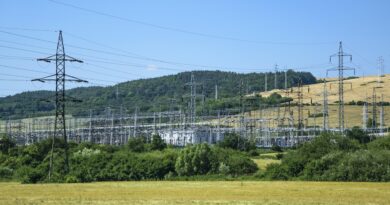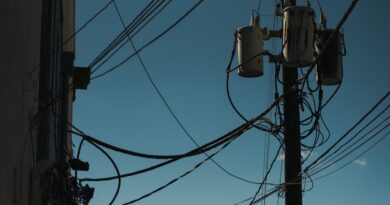Safety Mastery: Unleashing the Potential of Electrical Safety Audits in Faridabad
1. Introduction
Faridabad, a bustling industrial city in India, is known for its diverse manufacturing and industrial sectors. In such environments, electrical safety plays a crucial role in ensuring the well-being of workers and the smooth operation of businesses. To achieve optimal safety standards, organizations in Faridabad must embrace the power of electrical safety audits. This article delves into the significance of electrical safety audits and how they can be effectively utilized to enhance safety in Faridabad’s industrial landscape.
2. The Importance of Electrical Safety Audits
Electrical safety audits are comprehensive assessments conducted by qualified professionals to evaluate the safety and compliance of electrical systems in various settings. These audits are vital for identifying potential hazards, ensuring adherence to safety regulations, and implementing corrective measures to prevent accidents. In Faridabad, where numerous industries rely heavily on electrical infrastructure, conducting regular safety audits is essential to mitigate risks and create a secure working environment.
3. Understanding Electrical Safety Audits
An electrical safety audit involves a systematic evaluation of electrical systems, equipment, and practices to identify hazards, assess compliance, and recommend improvements. Auditors thoroughly examine electrical installations, wiring, grounding, protective devices, and safety protocols. They also review maintenance procedures, employee training, and documentation related to electrical safety.
4. Key Components of an Electrical Safety Audit
4.1 Inspection of Electrical Systems
Inspecting electrical systems is a fundamental aspect of safety audits. Auditors examine electrical panels, circuits, wiring, and connections to identify potential risks such as faulty wiring, inadequate grounding, or overloaded circuits. They assess the condition of equipment and check for proper labeling, clearances, and protection against physical damage.
4.2 Evaluation of Safety Protocols
Safety protocols play a crucial role in preventing electrical accidents. Auditors evaluate whether organizations have established comprehensive safety policies and procedures. They assess the effectiveness of lockout/tagout procedures, personal protective equipment usage, and fire prevention measures. Auditors also review the handling and storage of hazardous materials.
4.3 Training and Education
Proper training and education are essential for ensuring electrical safety. Auditors assess whether employees have received adequate training on electrical hazards, safe work practices, and emergency response procedures. They verify that training programs are up-to-date and evaluate the effectiveness of safety communication channels within the organization.
4.4 Documentation and Record-Keeping
Accurate documentation and record-keeping are crucial for maintaining a safe working environment. Auditors review records of electrical inspections, maintenance, and equipment testing. They ensure that records are properly organized, up-to-date, and readily accessible. Documentation provides evidence of compliance with safety standards and helps identify areas for improvement.
5. Benefits of Conducting Electrical Safety Audits
Conducting regular electrical safety audits in Faridabad brings several significant benefits to organizations. These include:
5.1 Enhancing Workplace Safety
Electrical safety audits provide a comprehensive assessment of the workplace environment, identifying potential hazards and areas for improvement. By addressing these issues, organizations can create a safer workplace for their employees, reducing the risk of accidents and injuries.
5.2 Complying with Regulations and Standards
Regulatory bodies set strict guidelines for electrical safety. By conducting audits, organizations can ensure compliance with these regulations and industry standards. Compliance not only avoids legal complications but also demonstrates a commitment to safety and responsible business practices.
5.3 Minimizing Risks and Preventing Accidents
Electrical safety audits help identify potential risks and vulnerabilities in electrical systems. By addressing these issues proactively, organizations can minimize the chances of electrical accidents, electrical fires, and equipment failures. Prevention is key to maintaining a safe work environment.
5.4 Building a Safety Culture
Regular safety audits foster a culture of safety within organizations. By prioritizing safety and conducting audits, organizations send a strong message to employees that their well-being is valued. This encourages employees to actively participate in safety programs and promotes a culture where safety is a shared responsibility.
6. Selecting a Qualified Electrical Safety Auditor
To ensure the effectiveness of an electrical safety audit, it is crucial to select a qualified and experienced auditor. Consider the following factors when choosing an auditor:
- Industry experience and expertise
- Knowledge of local regulations and standards
- Strong track record of conducting audits
- Reputable certifications and affiliations
By selecting the right auditor, organizations can maximize the benefits of the audit process and make informed decisions regarding electrical safety improvements.
7. Common Challenges and Solutions
Electrical safety audits may encounter some challenges along the way. These challenges can include resistance to change, budget constraints, and lack of awareness. However, organizations can overcome these obstacles by:
- Communicating the benefits of safety audits to stakeholders
- Allocating resources specifically for safety improvements
- Providing training and awareness programs to employees
- Emphasizing the long-term cost savings and risk reduction associated with electrical safety
8. Frequently Asked Questions
- Q: Why are electrical safety audits necessary?
- Electrical safety audits are necessary to identify hazards, ensure compliance, and prevent accidents. They help organizations maintain a safe working environment.
- Q: How often should electrical safety audits be conducted?
- The frequency of electrical safety audits depends on various factors, including industry regulations, the age of electrical systems, and previous audit findings. Consult with a qualified auditor for specific recommendations.
- Q: Can internal staff conduct electrical safety audits?
- While internal staff may have some knowledge, it is generally recommended to hire external auditors with specialized expertise to ensure an objective evaluation.
- Q: What are the consequences of non-compliance with electrical safety regulations?
- Non-compliance can lead to legal penalties, accidents, injuries, damage to property, and reputational harm. It is crucial to prioritize electrical safety and comply with regulations.
- Q: How long does an electrical safety audit typically take?
- The duration of an electrical safety audit depends on the size and complexity of the facility being audited. It can range from a few days to several weeks.
9. Conclusion
In Faridabad’s industrial landscape, electrical safety audits are a vital tool for mitigating risks, preventing accidents, and fostering a culture of safety. By conducting regular audits, organizations can identify potential hazards, improve safety protocols, and comply with regulations. Prioritizing electrical safety not only protects employees but also ensures the smooth operation and sustainability




